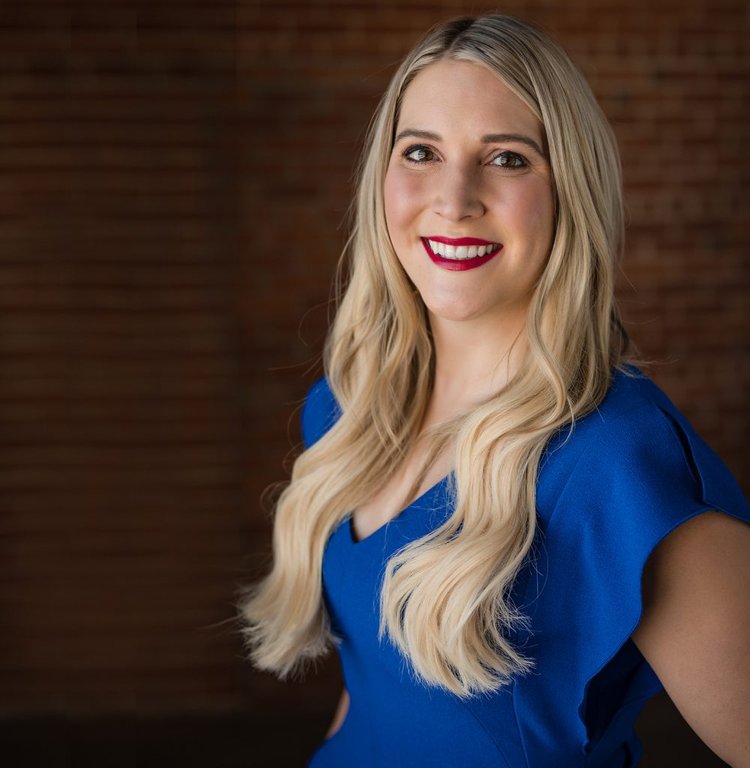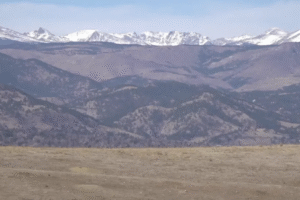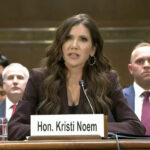Part 1: GOP Candidate for Wyoming State Superintendent Argues Parents Should Be at the Heart of Their Children’s Educational Decisions
Megan Degenfelder, the Republican nominee for Wyoming Superintendent for Public Instruction, says more transparency is needed in public schools
- Published In: Other News & Features
- Last Updated: Sep 09, 2022

By Jacob Gardenswartz
Special to the Wyoming Truth
Megan Degenfelder, whose victory over incumbent Brian Schroeder in the Republican primary race for Wyoming Superintendent of Public Instruction surprised many, is herself a “proud product of the Wyoming education system.”
A sixth-generation Wyoming native, Degenfelder, 33, attended public school in Casper before going on to serve as study body president at the University of Wyoming. The former chief policy officer for the Wyoming Department of Education, she’s now seeking to lead the agency and will face Democrat Sergio Maldonado in the November general election.
Degenfelder sat down with the Wyoming Truth for a wide-ranging conversation about her approach to the position, thoughts on hot-button topics like Critical Race Theory and how the COVID-19 pandemic has impacted schools statewide. What follows are excerpts from part one of the interview; part two will be published tomorrow.
How has your experience within the Wyoming education system impacted your approach to education policy?
Degenfelder: Growing up in Wyoming, I was afforded a great public education, with exceptional teachers, challenging academia and superior facilities. This is thanks to a thriving mineral industry, which has, in large part, funded education in the state. I also grew up in one of the few communities that allows for school choice within a district. This allowed my family and I to decide which school best fit my needs. . . As one of the first graduating classes of [the] Hathaway scholarship, there was a strong emphasis on the four-year college pathway. Growing up in a ranching family and having spent years working in the mineral industry, I have come to value and appreciate the need to prioritize career and technical educational pathways as well. By doing so, not only will more of our students thrive, but they will be better prepared for the Wyoming workforce.

Attending school at the University of Wyoming afforded me more opportunities than I ever thought possible, from a strong economics program to free study abroad opportunities, the ability to play college rugby across the country and be a leader in student government, actively lobbying at the state legislature and Governor as an undergraduate student. All this, with one of the most affordable tuition rates in the nation and incredible scholarship availability.
I’m a very proud product of the Wyoming education system, and I believe that I am who I am because of it. . . .
What are the biggest education issues in Wyoming that need to be addressed?
Degenfelder: To improve education in Wyoming, the areas I plan to focus [on] include:
1. Empowering parents by creating greater transparency, ensuring they have a voice and creating as many choices as possible in their child’s education.
2. Partnering with industry to create increased career pathway options and exposure and prioritizing career and technical education, so our students are prepared for the Wyoming workplace.
3. Getting government out of the way, so our teachers can do what they do best. This includes cutting the red tape at the state level [and] fighting back against political ideology in the classroom. . .
4. Improving literacy rates in grades K-3 by ensuring appropriate screeners, focusing on the most pertinent standards and determining an accurate assessment.
Newly released data from the National Assessment of Educational Progress showed just how much the COVID-19 pandemic impacted students across the country. How should Wyoming respond to everything that was lost during the pandemic?
Degenfelder: First off, the good news is that Wyoming had more in-person school days than any other state in the country during the pandemic. It was really important to our policymakers to get kids back into the classroom, and I agree that our kids need to be in the classroom to read.
There’s still impacts of the pandemic of course, even in Wyoming, and so we’ve really got to roll up our sleeves and get to work on those issues that specifically our kids have fallen behind in. I’m very passionate about making sure that literacy, especially in grades K through three, is a strong priority in the state, and that we’re making sure we’re focusing on those basics that prepare our kids for successful futures. As I’ve traveled the state across the summer, [I’ve received] lots of feedback on the mental health of students, and making sure that we’re taking care of kids with the impacts of the COVID-19 pandemic. So that’s an area where I’d like to focus on as well.
We’ve also seen that teachers have really been impacted by the pandemic. How should Wyoming respond to the teacher shortage?
Degenfelder: It goes hand in hand. Speaking to our teachers across the state, they’re feeling burnt out; they’re feeling a lack of support. So we’ve got to work to take care of our teachers in the state. For me, it falls into three areas:
The first is incentives. As an economist, I know that incentives work. We’ve always prioritized incentivizing very well for good teachers to come to Wyoming from across the country. And then I think a lot of it is empowerment and support. Empowerment — we’ve got to restore teachers as the professionals in our community that they are. And in terms of support, we have to make sure that we’re prioritizing the support for teachers, whether it’s through our institutions of higher learning and also making sure they have the induction specialists and support. Those years one through three are critical for new teachers.
Wyoming is unique in that so much of the education budget comes from oil, gas, coal revenues, which have been declining in recent years. What are your thoughts on education funding and how to build a sustainable model moving forward?
Degenfelder: Our Constitution, our forefathers determined that we would prioritize education in Wyoming, more so than in many other states. Our Constitution requires that the legislature create a basket of goods and they fund that basket adequately and equitably. . . . .
But I think what’s really important in the role of state superintendent is making sure that we’re advocating for funding to be nimble in those areas that are most impacting schools and communities and parents, and then making sure that the superintendent is working with districts to create as many efficiencies as possible. When I was at the department, I worked very hard to do that in areas such as transportation. And so I think looking at ways that we can better partner, we can have shared services so that the state department [of education] can reduce the reporting overload that we’re seeing through the districts. Making sure that we’re funneling funding as closely to the classroom with students and teachers — that’s really where funding needs to be prioritized.













